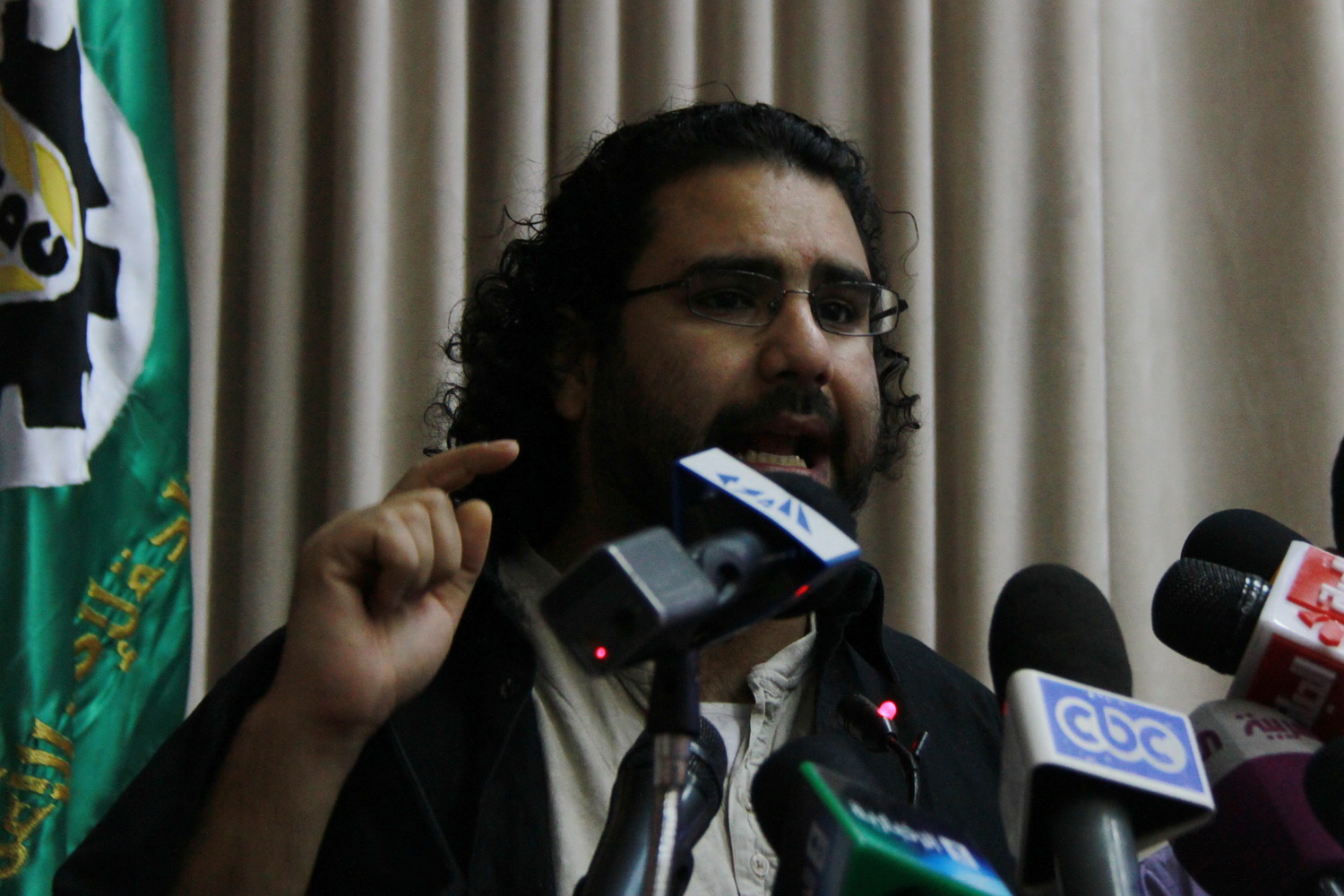CAIRO: Al-Azhar institution indicated on one hand that it is not required to revise books issued by Al-Azhar while it is very active in preventing books written by intellectuals and Islamic scholars discussing religious affairs which they should not be involved with, said Gamal El-Banna, Islamic writer, to The Daily Star Egypt.
El-Banna s comment came as a reaction to Al-Azhar Sheikh Mohamed Sayed Tantawy’s statement that said that Al-Azhar is not in charge of revising books published by the same institution. Tantawy made these comments to Al-Masry Al-Youm after a meeting he held with members of the Islamic Research Center. The meeting took place two days ago to discuss the controversy stirred by recent fatwas.
However, as Al-Masry Al-Youm indicated, Tantawy stated that he had requested that Ali Gomaa, Egypt s top Mufti, withdraw his book, which claimed that Prophet Mohammed’s (PBUH) companions used to drink his urine, considering it a blessed act, from the market.
El-Banna said that Gomaa s book should never have been released.
And for releasing this book, Gomaa should be condemned, El-Banna added.
Dr Ali Gomaa should have refused to accredit this Hadith [Prophet Mohamed’s (PBUH) Sayings] and consider the case [of Prophet Mohammed’s (PBUH) companions drinking his urine] to be strange and unacceptable, El-Banna said.
El-Banna s doubted the creditability of the Hadith and added that not all of the Hadiths told by Prophet Mohamed’s (PBUH) companions are true.
I do not know why Al-Azhar insists in believing that Prophet Mohamed’s (PBUH) companions are all saints and unable to make mistakes, while they are in fact normal human beings who can do wrongs, El-Banna said.
El-Banna also indicated that the whole issue of Prophet Mohammed’s (PBUH) companions drinking his urine, considering it a blessed act, is not by any means beneficial to the public.
“We hope that we will no longer have to see another fake and incorrect fatwa similar to those that have been released recently about breastfeeding adult men and the Prophet s Mohammed’s (PBUH) urine, according to Sheikh Mohmoud Ashour, former deputy of Al-Azhar and member of the Islamic Research Center, in a former interview with The Daily Star Egypt. A person who issues a fatwa should be qualified to do so. He should be honest and careful with every fatwa he releases, Ashour said.
El-Banna said that Al-Azhar sheikhs who issue similar fatwas do not use their brains before issuing fatwas.
Tantawy also announced that the meeting did not discuss the fatwa of Sheikh Ezzat Atiya, president of the Hadith (Prophet Mohamed’s (PBUH) Sayings) Department at Al-Azhar University, in which he had drawn on Islamic traditions which forbid sexual relations between a man and a woman who had breastfed him, to suggest that symbolic breastfeeding could be a way round the strict segregation of males and females, according to Al-Masry Al-Youm.
A week ago Gomaa requested that all Islamic institutions adopt a unified standard to which all sheikhs in the world should adhere, when it comes to issuing fatwas, reported Al-Ahram daily newspaper.
Gomaa s request was made during a conference that brought together members of Dar El Ifta (house of fatwa, religious edicts) in Kuwait.
The storm of criticism that proceeded the recent controversial fatwas, fed by wide coverage on Arab media channels, reached all the way up to the People’s Assembly (PA). Around 50 members in the PA discussed submitting investigative questioning, as reported on the Al-Arabiya website.
The PA decided instead to give Al-Azhar a chance to retract the fatwa itself, in the hope that it would divert media attention from the issue because they felt it was detrimental to Al-Azhar and Islam’s image.
Keywords: Al-Azhar claims to be not in charge of reviewing its books, By Yasmine Saleh, The Daily Star Egypt staff, CAIRO, Al-Azhar institution, intellectuals and Islamic scholars discussing religious affairs, Gamal El-Banna, Islamic writer, Mohamed Sayed Tantawy s, Al-Azhar Sheikh, statement in which he indicated that Al-Azhar is not in charge of revising books published by Al-Azhar, members of the Islamic Research Center, controversial fatwas, El-Masry El-Youm newspaper, Ali Gomaa, Egypt s top Mufti, Prophet Mohammed’s (PBUH) companions used to drink his urine, considering it a blessed act, , Ali Gomaa book, Hadith (Prophet Mohamed’s (PBUH) Sayings), the creditability of the Hadith, Al-Azhar sheikhs, issuing fatwas, a person who issues a fatwa should be qualified to do so, Sheikh Ezzat Atiya, president of the Hadith (Prophet Mohamed’s (PBUH) Sayings) department at Al-Azhar University, in which he had drawn on Islamic traditions which forbid sexual relations between a men and a women who had breastfed him, to suggest that symbolic breastfeeding could be a way round the strict segregation of males and females, all Islamic institutions put a unified standard to which all sheikhs in the world should adhere, Al-Ahram Daily newspaper, members of Dar El Ifta (house of fatwa, religious edicts), People’s Assembly (PA), Al-Arabiya website, Al-Azhar and Islam’s image.

